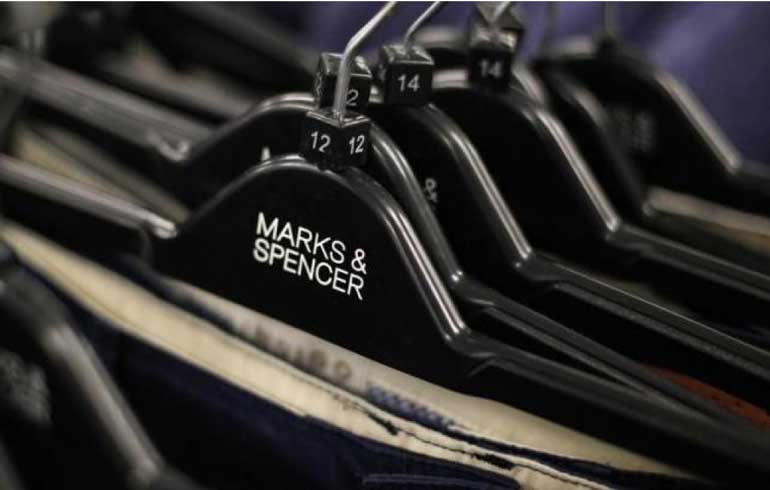Friday Feb 27, 2026
Friday Feb 27, 2026
Friday, 8 July 2016 00:00 - - {{hitsCtrl.values.hits}}

LONDON (Reuters): Marks & Spencer suffered its biggest fall in quarterly clothing sales since 2005 on Thursday as a decision by new boss Steve Rowe to cut prices and offer fewer promotions took its toll on the British retailer.
M&S said consumer confidence waned in the run up to Britain’s European Union referendum last month but said it was too early to judge the implications of the Brexit vote and stuck to its financial guidance for the 2016-17 year.
“We’re operating in uncertain times, consumer confidence weakened in the run-up to the EU referendum and remains fragile,” Chief Executive Steve Rowe told reporters.
He has the tough task of reviving a 132-year-old British institution that has fallen out of fashion over the last decade.
Sales from the company’s upmarket food business, its strongest performer in recent years, also went into reverse. Rowe, a company veteran of 26 years, succeeded Marc Bolland as CEO in April and warned the following month that efforts to turn around its clothing business by cutting prices and improving ranges would come at a cost to short term sales and profit. “Although these results are on the low side of where I want them to be, they are in line with our plans, it’s what we expected,” he said.
Analysts were harsher in their verdict. “The news is horrible,” said independent retail analyst Nick Bubb.
Analysts at Liberum cut their 2016-17 pretax profit forecast by 4.6%. “It is hard to see that full-year (profit) consensus can do anything other than fall,” they said.
Prior to Thursday’s first quarter statement, analysts’ average forecast for 2016-17 pretax profit was 622 million pounds ($808 million), down from 690 million pounds made in 2015-16.
M&S said that over the 13 weeks to July 2, its fiscal first quarter, sales of clothing and home products at stores open over a year fell 8.9%. It was M&S’ worst quarterly performance since the first quarter of its 2005-06 year.
Equivalent food sales fell 0.9%, worse than analysts had forecast although M&S said it still strongly outperformed the wider food market. M&S, which has long been Britain’s biggest clothing retailer, has seen its market share eroded by rivals like Next and a push from supermarkets into clothing, while younger shoppers favour Primark and H&M’s cheaper prices.